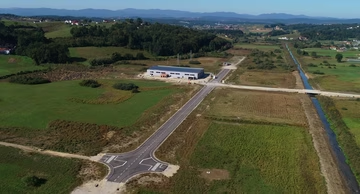
The United Nations Development Programme in Bosnia and Herzegovina (UNDP) successfully implemented the ''Capacity Building Initiative for Transparency'' (CBIT) project in Bosnia and Herzegovina, financed by the Global Environment Facility (GEF), announced the UNDP.
The project supported the enhancement of institutional and technical capacities of relevant institutions in BiH to meet the transparency requirements defined in Article 13 of the Paris Agreement.
To fulfill these obligations, the process of collecting, processing, and transmitting data to the United Nations Framework Convention on Climate Change (UNFCCC) is required in order to establish a sustainable reporting system regarding Nationally Determined Contributions (NDCs) and other aspects of climate change, in line with the commitments undertaken in the Paris Agreement.
The project has made significant strides in several key areas, including capacity building of relevant stakeholders and the establishment of a Monitoring, Reporting and Verification (MRV) system for greenhouse gas (GHG) emissions in BiH, that requires a multisectoral approach. The availability of credible data resulting from these efforts will improve the GHG emissions inventory and empower relevant institutions to make informed decisions aimed at reducing GHG emissions and mitigating the impacts of climate change on local communities.
One of the project's achievements was the development of a comprehensive training program to enhance technical capacities in preparing GHG inventories, including Quality Assurance and Quality Control (QA/QC) procedures. Additionally, the project provided technical support in preparing relevant laws and by-laws to improve data collection, monitoring, and reporting on data related to climate change adaptation.
The project also supported the establishment of the Environmental Information System (EIS) as a central repository for environmental and climate change data. By enhancing the capacities of institutions in data collection, management, and sharing processes, the project has laid the groundwork for more efficient and sustainable practices.
Furthermore, to promote gender equality, the project actively involved women representatives from various institutions - out of 173 participants in project activities, the participation rate of women is 76%. The project also supported the Coalition for Gender Equality and Climate, launched as part of the global initiative "Generation Equality," aiming to accelerate progress in gender-responsive climate action by 2026. This support resulted in the development of a useful Report mapping the gender component in data and legal acts related to climate change, the environment, and biodiversity.
In addition to the presented activities and achievements, the project provided concrete and useful recommendations for shaping future similar interventions.
By strengthening institutional and technical capacities, Bosnia and Herzegovina is better equipped to meet international environmental obligations, contributing to a more sustainable future.
The project was implemented in cooperation and with co-financing from the Ministry of Foreign Trade and Economic Relations of BiH, the Ministry of Spatial Planning, Construction, and Ecology of Republika Srpska, the Ministry of Environment and Tourism of the BiH Federation, as well as the entity Hydrometeorological Institutes.
UNDP expresses gratitude to all partners for their immense contribution to the success of the CBIT project in Bosnia and Herzegovina, it is said in the announcement.
Kakvo je tvoje mišljenje o ovome?
Učestvuj u diskusiji ili pročitaj komentare





 Srbija
Srbija
 Hrvatska
Hrvatska
 Slovenija
Slovenija



























































